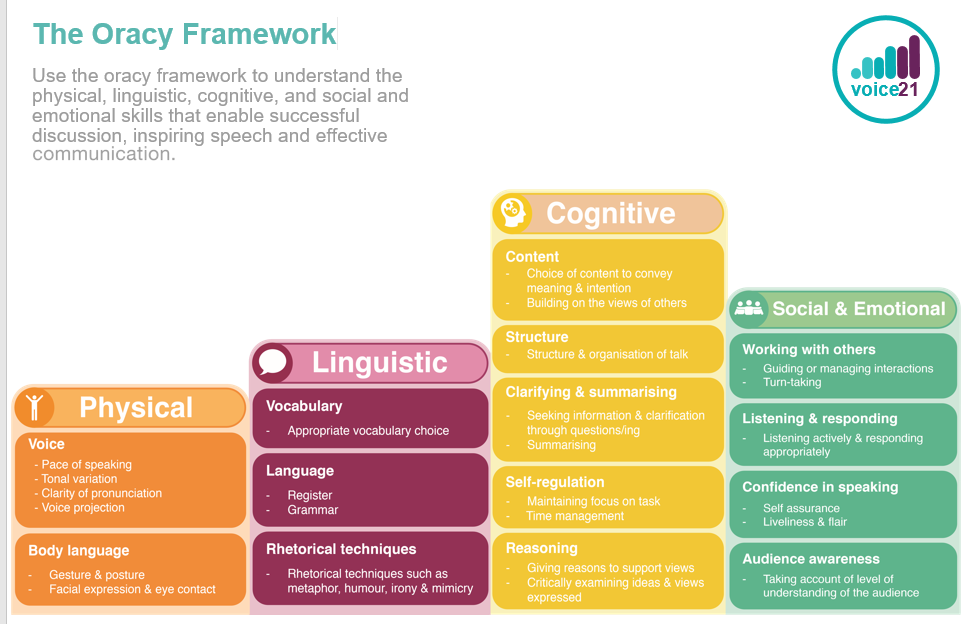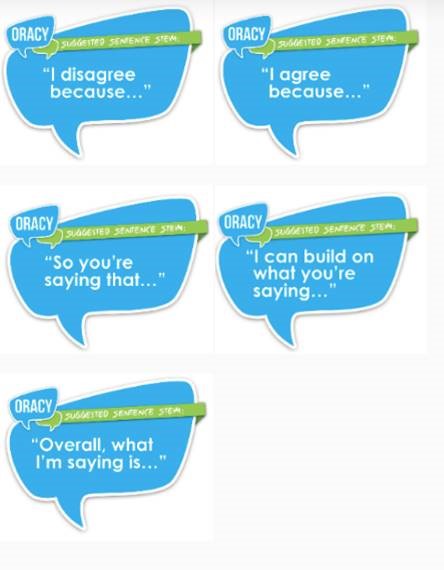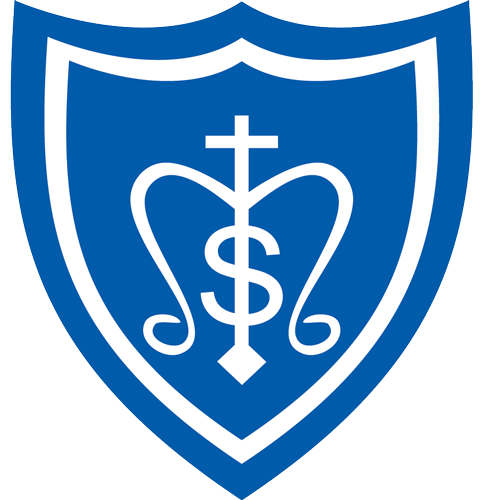Statement
St. Mary’s Catholic Primary School is committed to meeting the requirements of the new primary curriculum.
We have taken this as an opportunity to reflect on our curriculum intent. Our Catholic foundation, our location and our pupils. We have designed our curriculum to reflect that our school is:
- Coastal;
- Catholic;
- International.
Each cross-curricular theme begins with a ‘Stunning Start’ to engage the learners, include an educational site visit and/or a visitor and concludes with a celebration of learning, a ‘Fabulous Finish’, shared with parents and carers.
Our core values will be developed over the year:
- Confidence and collaboration – Autumn Term
- Creativity and service – Spring Term
- Independence – Summer Term
Topic Based Curriculum
You can download the topic cycle two-year planner from the bottom of this page. This will tell you which topics are being covered by each class in each term. The books studied in english lessons and mathermatical problems will be linked to these particular topics. The topics covered will have a ‘major’ subject as a lead. For example, the ‘Vikings’ topic will have a strong emphasis on history whereas the ‘Space’ topic will be led by scientific enquiry. By linking the learning and showing children the big picture we aim to ensure that the children maximise both their progress and enjoyment of learning.
In Early Years, most topics are chosen on the interests of the children. Some topics are fixed to coincide with special times in the liturgical year such as Advent and Lent and we celebrate feast days and festivals. Also, at certain times throughout the year, we learn about the seasons and other festivals such as Chinese New Year and Diwali.
Autumn 2023 Knowledge Organiser Years 1 and 2
Autumn 2023 Knowledge Organiser Years 3 and 4
Autumn 2023 Knowledge Organiser Years 5 and 6
Spring 2024 Knowledge Organiser Years 1 and 2 – Lighthouses and Lifeboats
Spring 2024 Knowledge Organiser Years 3 and 4 – Victorian Inventors
Spring 2024 Knowledge Organiser Years 5 and 6 – Space/Science
Spring 2024 Knowledge Organiser Years 5 and 6 – Earth Matters Geography
Summer 2024 Knowledge Organiser Years 1 and 2 – Oceans and Coasts
Summer 2024 Knowledge Organiser Years 3 and 4 – The Rainforest
Subject Information
The Foundation Stage
is made up from the seven Foundation Stage areas of learning. There are three prime areas – Personal, Social & Emotional Development, Communication & Language, & Physical Development and four specific areas of learning – Literacy, Maths, Knowledge and Creative & Expressive arts. Children are taught through a balance of child initiated and teacher led activities. We also follow the ‘Come and See’ RE programme.
Mathematics
We aim to equip all children with numerical, spatial and data-handling skills, which will develop powers of logical thought. We emphasise understanding and the application of the rules of Maths and aim to ensure all are successful. Mental Maths sessions are planned daily. Calculation, computers and mathematical instruments are used to aid the children in their mathematical concepts.
Science
At St Mary’s Catholic Primary School our vision is to ignite pupils’ curiosity and encourage them to confidently explore and discover the world around them, so that they develop a deeper understanding of the world we live in. Through our practical and enjoyable curriculum we aim to inspire and excite our children and foster a thirst for knowledge. In addition, the teaching of science will promote and develop transferable skills such as observation, communication and teamwork and allow mathematical skills to be applied.
Our aim is that stimulating and challenging problem solving experiences will enable children to secure and extend their scientific knowledge and vocabulary. We believe that these opportunities will ensure that our children are confident, life- long learners who will continue to explore and question the world around them.
Curriculum
Our aims in teaching the science curriculum are that all children will:
- Find science awe-inspiring.
- Retain, question and develop their natural sense of curiosity about the world around them.
- Develop a set of attitudes which will promote scientific ways of thinking, including resilience, evaluative problem solving and teamwork.
- Become effective communicators of scientific ideas, facts and data.
- Understand the process of ‘working scientifically’ involving: careful observations, predictions and hypotheses, design of fair and controlled experiments, drawing of meaningful conclusions through critical reasoning and evaluation of evidence.
- Build up a body of scientific knowledge and understanding which will serve as a foundation for future enquiry.
Progression will be assessed through evaluation of a child’s written work using the unit objective assessment criteria, with consideration of their responses and contributions to discussions and practical experiments.
Art
The children are introduced to a range of mediums e.g. drawing, painting, printing, clay, textiles and collage skills in the early years and these are extended and refined as they go through the school. Children look at the work of a range of artists and respond to them.
Humanities
At St Mary’s, we believe Geography can inspire children with a curiosity and fascination about the world and its people, which will remain with them for the rest of their lives. It is taught as a subject through a topic-based curriculum that balances Geography Skills and Fieldwork with Locational and Place Knowledge, with Human and Physical Geography: three aspects of Geographical study that we recognise as interdependent.
In Key Stage 1, children will develop their locational knowledge of the continents, oceans, countries
of the United Kingdom, Bognor and a contrasting non- European country. They will compare
the human and physical features of these places and the variations in weather patterns. The children
will develop their geographical vocabulary and learn how to use atlases, globes, simple compass
directions, aerial photographs and use and make maps. The children will have the opportunity to
take part in field trips.
In Key Stage 2 the children will extend their locational and place knowledge, studying areas of Europe as well as areas of North and South America. They will continue to look at similarities and differences in human geography such as types of settlement, land use, distribution of natural resources, and economic and environmental impact. They will also study physical geography elements such as climate zones, rivers, mountains and volcanoes. Children will continue to use maps, atlases and globes and will use the 8 points of the compass in their work. They will begin to use four and six figure grid references and ordinance survey maps. The children will have further opportunities to take part in field trips.
At St Mary’s we have a clear progression of skills and knowledge, to ensure children develop, and build on these each year. Attainment is assessed through short, summative teacher assessments where the children can demonstrate the skills and knowledge relating to the topic.
From KS1 children are taught to understand the significance of human history and how life has changed over time. They develop an understanding of chronology and learn how to examine evidence to find similarities and differences, cause and effect. Children are offered a range of Topics that include British history, history of the wider world and ancient civilisations. Our younger children reflect on history within living memory and their place within it as well as the importance of significant figures. Our older children take on broader concepts like empire and democracy and are given rich opportunities to discuss, debate and form their own opinions on historical events. Children benefit from visits to local historical sites and museums. They are also given opportunities in school to examine artefacts and sources, so that they can experience history first-hand.
Within our geography based topics our young children develop their understanding of the broad and varied landscapes of the Earth, from the Arctic to Africa. They start to develop their skills in map reading and understanding of climates. Our older children study places near and far in greater detail, map skills and focus on particular themes e.g. rivers. They delve deeper into issues such as climate change and Global Warming, this learning is underpinned by our school’s Catholic Ethos of stewardship for the Earth.
Computing
Every classroom has at least two computers and printer and children have access to the ICT Suite. The children use the computers across the curriculum for word processing, data handling, Powerpoint simulations, control and modelling. There is a controlled access to the internet. The children will be taught the new National Curriculum programme of study using the i-compute scheme. The school has its own intranet. We have a bank of laptops and ipads. Roamer robots, Bee Bots, probots, crazy talk and digital blue cameras, all provide opportunities for control, modelling, animation and manipulation of images. An ICT/Research Suite has been installed and is fully networked, providing 16 work spaces and an 8 space computer table in Foundation/KS1 area.
Relationships and Sex Education; 'Ten:Ten'
Education in Personal Relationships/Sex Education
Each class teaches themes linked to the RE topics that include helping the children to learn about:
- Helping your child start the school year and building relationships.
- Learning about family life, school life and Parish life as part of their community.
- Learning how to make friends, solve conflicts peacefully, being assertive and supporting each other.
- Growing-up, puberty and relationships.
Class teachers use circle times, the Bible garden and visitors to the school to support the teaching of EPR. Our Sex Education Policy allows the children to begin learning about positive relationships and develops self-awareness.
Religious Education
We follow the new Religious Education programme for schools in England published by the CES (Catholic Education Service), To Know You More Clearly. In line with Diocesan recommendations this has been a phased implementation, therefore LKS2 continue to follow the Come and See programme at present. Please see the ‘Religious Education’ section under the Catholic Life tab for more detailed information about our Religious Education curriculum.
English
Speaking and listening, reading and writing are still the most essential skills, which underpin much of our learning. We have engaged with the ‘Voice 21’ programme to enhance oracy in school and develop children’s confidence in speaking and presenting. We believe that children need to speak aloud in sentences before they can become competent writers.
Children are encouraged to read and listen to a wide range of literature. Parents work in partnership with the teacher encouraging reading of an increasingly varied mixture of fiction/non-fiction material.
Essential Letters and Sounds is our phonics programme, started in January 2022, to enable our Early Years and Year 1 children to become fast, fluent and confident readers. The videos below will tell you a little bit about Essential Letters and Sounds and also how to help your child pronounce each of the 44 sounds they will learn:
https://www.youtube.com/watch?v=7sJ8IOOMJGs
https://www.youtube.com/watch?v=UCI2mu7URBc
Reading in KS2 is enhanced by ‘Accelerated Reader’ which enables children to read at the appropriate level and then quiz to check understanding.
Writing is developed as a way of organising thoughts and expressing themselves for a range of purposes and audiences. Grammar and spelling are taught as part of writing lessons and supplemented by online access to ‘Spelling shed’.
We encourage a love of literature by immersing children in quality texts. Through drama and role play the children develop knowledge of characters and settings and begin to write around the text themselves. They follow a process of planning, drafting, editing and publishing and become adept at polishing their writing.
Technology
DT should provide children with a real life context for learning. At St. Mary’s, we want children to use creativity and imagination, to design and make products that solve real and relevant problems within a variety of contexts, considering their own and others’ needs, wants and values. Through the DT curriculum, children should be inspired by engineers, designers, chefs and architects to enable them to create a range of structures, mechanisms, textiles, electrical systems and food products.
All teaching of DT should follow the design, make and evaluate cycle. Each stage should be rooted in technical knowledge. The design process should be rooted in real life, relevant contexts to give meaning to learning. While making, children should be given choice and a range of tools to choose freely from. To evaluate, children should be able to evaluate their own products against a design criteria. Each of these steps should be rooted in technical knowledge and vocabulary. DT should be taught to a high standard, where each of the stages should be given equal weight.
Spanish
St Mary’s is very fortunate to have a teacher who is fluent in Spanish. Children in KS2 learn Spanish for 30 minutes each week using the ‘Language Angels’ resource. We also have a Spanish Club taught by a native speaker and have annual visits from teachers from Madrid to enhance our cultural understanding.
Music
All children are given opportunities to make music, compose, listen and respond to a range of music. Children have the opportunity to learn to play the recorder, violin, cello, clarinet, keyboard, percussion and guitar. We have achieved the National Silver Singing Award. Recorders are taught to Year 5 children for an entire year to introduce them to a tuned instrument. Children in every class have one music afternoon per term involving listening, composing and playing instruments.
Physical Education
Physical activity fosters well being and co-operation with others as well as giving confidence and enjoyment to the participants. Children take part in gymnastics, dance and games every year with time allocated to athletics, outdoor pursuits and swimming in Key Stage 2. The children are introduced to and play football, netball, hockey, rounders, athletics, swimming and cricket. As in other curriculum areas, the skills are built up from the infants with an emphasis on extending the range and ability of the child. We have a well-equipped hall for gymnastics, a large range of games equipment, a netball court and large field for football, hockey etc. This year specialist coaches are assisting us. We use Arun Leisure Centre for swimming. During the year, football, dance, netball, tag rugby, hockey, fencing and athletics clubs are organised after school.
The football and netball teams play against all the other Bognor/Felpham Schools and take part in the schools’ tournament. The children take part in Summer athletics events involving all the local schools. At various points throughout the year different groups of children are given the chance to take part in school games festivals and tournaments such as Tri Golf, Quicksticks and Quad kids. Gifted and talented children take part in the future flyers programme.
More Able Children
We seek to extend those children who are identified as having particular talents or abilities. We participate in the Locality and Deanery Enrichment Programme to give children further opportunities to extend their abilities and meet other children with similar talents. Staff members are encouraged to identify children who are more able in each curriculum area and provide provision in their planning. The school keeps a register of all more able children, which is moderated and updated each year.
End of Key Stage Assessments (SATs)
For more information about our end of key stage assessments, please download our SATs Parents Information Evening 2022 presentation here.
Oracy
“Oracy develops students’ confidence, articulacy and capacity to learn. To provide a high quality oracy education empowers pupils, regardless of their background, to find their voice for success in school and in life.” Voice 21
What approach do we follow for teaching oracy?
We are a ‘Voice 21’ School. We support the development of good speaking and listening skills amongst our pupils through developing vocabulary and spoken language. Correct spoken language and the development of vocabulary are fundamental to learning and communicating.
We aim to teach our children how to listen to others, how to speak effectively in a range of contexts and how to use these skills to collaborate with others.

How do we teach vocabulary?
Every topic lesson includes key vocabulary teaching, the vocabulary is subject specific and important for the understanding of key knowledge in the lesson. Vocabulary taught comes directly from the knowledge organiser. We teach vocabulary through the approach:
- Read it
- Say it [accurately to your partner]
- Define it
- Use it [In context]
Every classroom displays oracy sentence starters at the top of their interactive whiteboard. Displaying sentence starters encourages and promotes talking in full sentences and the use of sentence stem starters helps to support development of speech and talk.

How do we develop oracy and talk?
- Give supportive formative feedback
- Invite pupil to ‘say it again better’
- Respond to improved response
Oracy outcomes are planned and completed across the curriculum throughout the academic year.
We encourage partner talk in every lesson and the children ‘rise and shine’ when sharing a response to further develop their communication and speaking skills.

